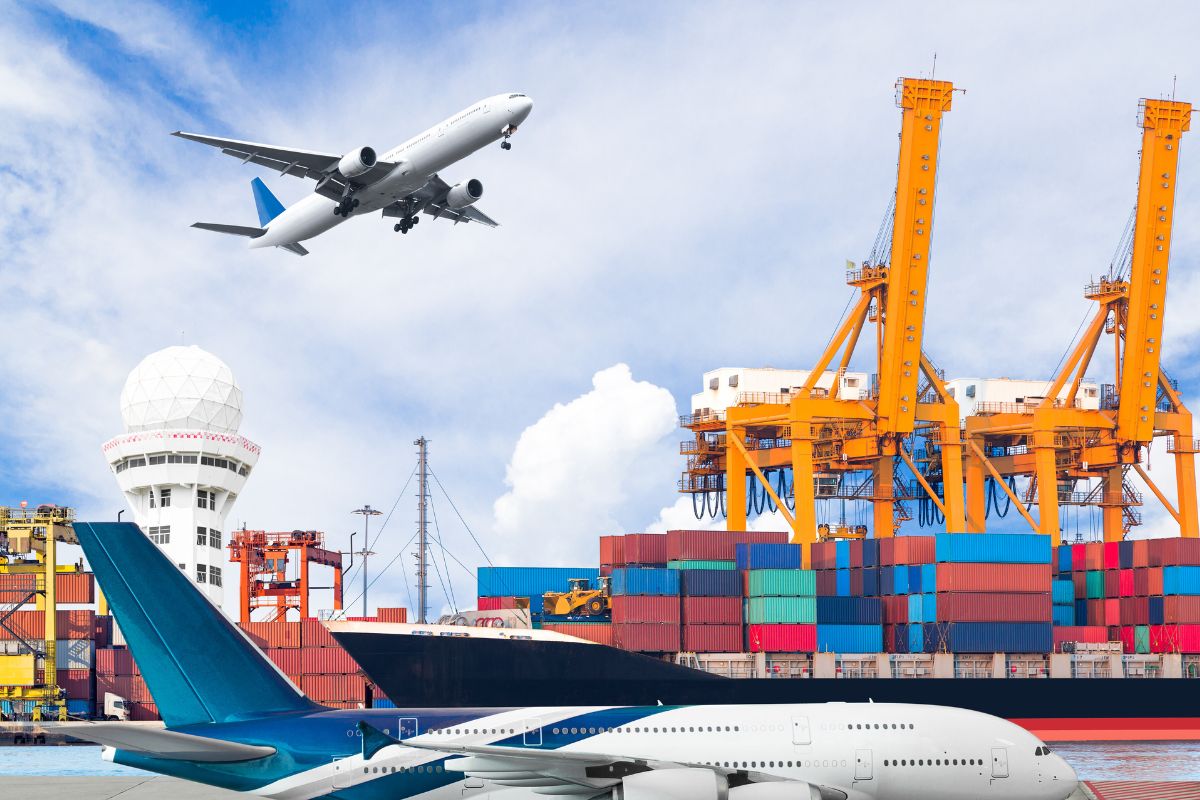Difference Between Freight Forwarding and Logistics

In today’s fast-paced world of international trade and supply chains, the terms “freight forwarding” and “logistics” are often used interchangeably. When it comes to moving and managing things, though, they have separate jobs.
Knowing the difference between Freight forwarding and logistics will help companies seeking to optimize their supply chain and select the ideal partners for their shipping and distribution services.
Table of Contents
ToggleUnderstanding Freight Forwarding
Freight forwarding is a specialised business that moves goods from one place to another, generally across nations. Freight forwarders are those who help shippers and carriers work together. They don’t move the products directly; instead, they work with carriers like sea, air, rail, or road transport companies.
The main job of a goods forwarder is to negotiate prices, book space, handle paperwork and get things through customs. They help enterprises get into the worldwide market by figuring out how to export or import goods.
Defining Logistics
Logistics is a broader word that includes all the steps involved in planning, carrying out, and keeping track of the smooth movement and storage of commodities, services, and associated information. It includes managing inventory, moving things in and out, storing things, handling materials, packing, and delivering things to the final mile.
Logistics companies want to make the complete supply chain go more smoothly, from getting raw materials to getting them to the client. Their goal is to speed things up, save costs, make consumers as happy as possible, and eliminate delays or problems with getting items to customers.
Scope of Services Offered
Freight forwarders mostly work with international shipping, customs clearance, tracking shipments, and following the rules while shipping across borders. They can also offer extra services for foreign shipments, such cargo insurance, interim storage, and optimising the route.
On the other hand, logistics companies offer a wider range of services. These include managing transportation, fulfilling orders, processing refunds, predicting inventories, and even reversing logistics. Their main goal is to build a system that works well and costs less at every step of the supply chain.
Key Responsibilities and Roles
Forwarders make international shipments easier to understand. They know the rules for commerce, tariffs, and how to fill out paperwork. Their value comes from their knowledge of shipping routes throughout the world, carrier relationships, and real-time cargo tracking.
On the other hand, logistics managers or companies are more strategic in how they do things. They plan, run, and improve the internal systems that move items from one place to another. This might mean running a fleet of cars, working with suppliers, and using technological platforms to make things more visible and help people make better decisions.
When you compare freight forwarding and logistics, it’s clear that they are both parts of global company but have different jobs to do. Freight forwarding is a part of logistics, although logistics is a much bigger field that includes planning and coordinating. Linkhouse and other such services keep business owners, exporters, and supply chain managers up to date with professional material and the latest news from the sector.
Technology and Integration
Logistics and goods forwarding have both used technology to make things run more smoothly. Freight forwarders employ digital platforms, pricing comparison, reservations, and paperwork. Logistics companies often utilise advanced software like transportation management systems (TMS), warehousing management systems (WMS), and real-time tracking systems. Shipping and Logistics.
The use of AI, blockchain, and big data together is making both businesses more accurate, open, and effective. Companies that use these technologies are better prepared to handle the growing complexity of trading across countries.
Selecting the Ideal Service Provider
Before picking between a goods forwarder and a full-service logistics provider, businesses should think about what they need. You may utilise a freight forwarder to handle simple international shipping tasks. But if you want a complete solution that includes warehousing, inventory, and delivery, a logistics partner is the ideal choice.
Companies usually use both types of services: freight forwarders for overseas shipments and logistics providers for warehousing and distribution.
Final Thoughts
Companies can make better judgements and shorten their supply chains if they know the difference between goods forwarding and logistics. Freight forwarding is only about moving goods from one border to another. Logistics, on the other hand, includes the complete process of moving, storing, and delivering goods. In this competitive age, using the right abilities at the right time makes things run more smoothly, cuts costs, and gets things to you faster.
Published by Carol Jones
My aim is to offer unique, useful, high-quality articles that our readers will love. Whether it is the latest trends, fashion, lifestyle, beauty , technology I offer it all View more posts
Recent Post
Your Guide to Travel in Budapest







